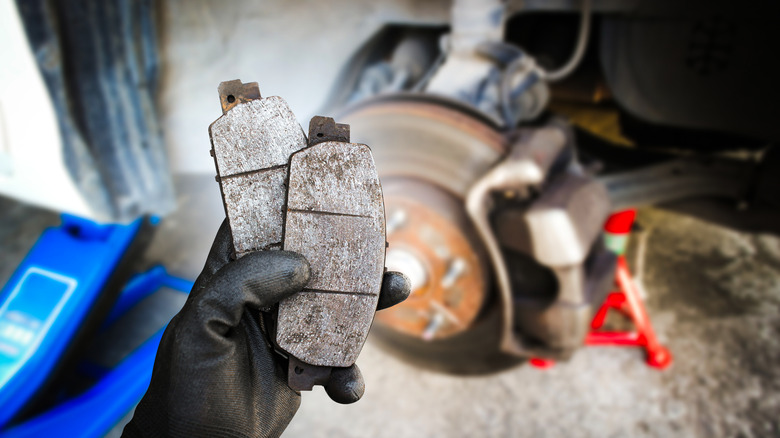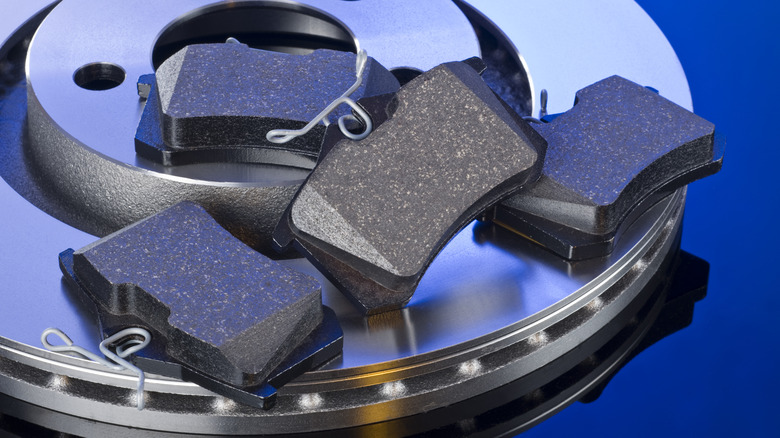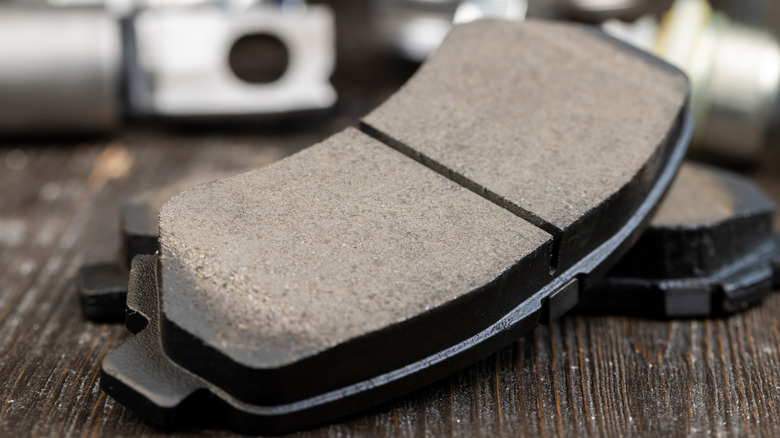Which Type Of Brake Pad Produces The Least Dust?
Brake pad dust is a natural part of owning and driving a car. As you use your brakes, the pads will grind with the wheel rotors, and the friction wears down the pad and create dust. But just because brake dust is expected doesn't mean it's welcome. If it piles up too much, it can be difficult to clean and ultimately damage your rims.
If the dust is proving too excessive, there may be a problem with your brake system, but in general, a certain amount of brake dust is expected. However, the amount of dust produced in most situations will depend a lot on the type of brake pad you have. Ideally, you'll want brake pads that don't produce a lot of dust, so you don't need to be constantly cleaning your wheels. So, what should you get for your next set of brake pads?
But before we get into which brake pads create the least dust, you should know what the material options are in the first place.
What types of brake pads are there?
There are four types of brake pads: ceramic, organic, metallic, and semi-metallic. Depending on how you use your car, a different type of brake pad will be best for you.
If you drive your vehicle mainly within your city and town and don't often go on the highway, the low-cost organic brake pads are the most attractive option. However, they wear down faster and can't handle extreme temperatures well. Metallic and semi-metallic brake pads are more durable and can withstand higher temperatures, but they can also be loud and are mostly recommended for performance driving or towing. Ceramic brake pads offer the same benefits as metallic pads and are quieter, but they're more expensive and aren't a great choice in very cold environments.
Of course, the differences between brake pad types and materials also extends to how much brake pad dust is being created. Metallic brake pads produce the most dust due to the material used, while organic brake pads produce a bit less.
Ceramic brake pads produce the least dust
Of all the brake pad types available, ceramic brake pads will produce the lowest amount of dust. Due to the materials used, the dust that is produced is much finer than the dust produced with other materials. As such, less of the dust sticks to the wheels, and the lighter color makes the dust that does stick less unsightly.
But just because ceramic brake pads create the least dust doesn't mean they're the right choice for your vehicle. It's important to weigh the pros and cons of ceramic brake pad materials against other options. Even if an organic brake pad produces more dust, if you're not driving a lot, the extra cost may not be worth it — but only you know your driving habits and what will work best for you. If brake pad dust is your number one concern, you'll want a ceramic brake pad.


